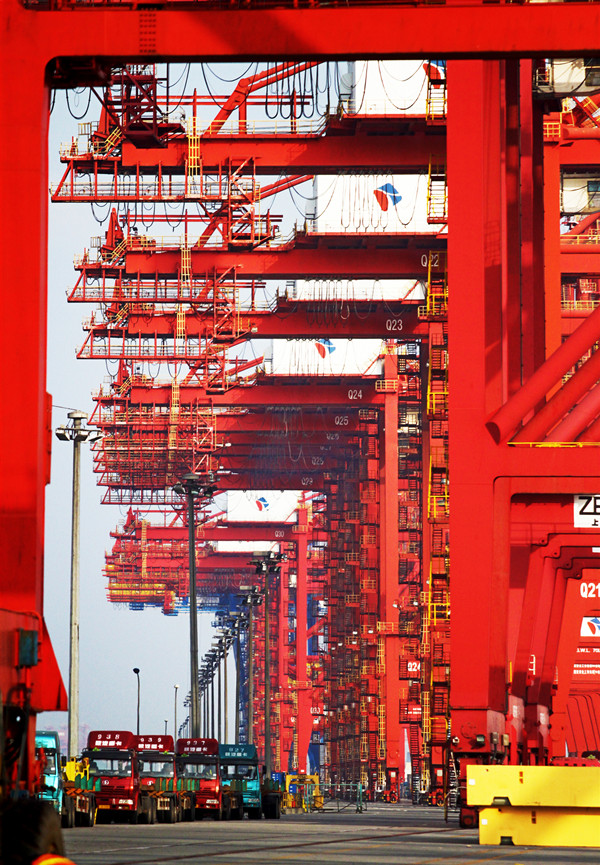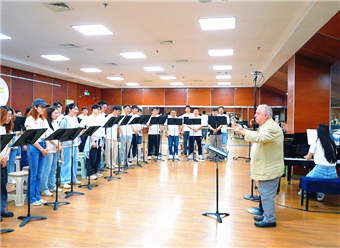Factory helps build more than products

Marina Kalnitski (left), a job coach at Inclusion Factory in Taicang, Jiangsu province, talks to an employee. [Photo/WeChat account: tcsrmtzx]
Comfortable and bright, the Inclusion Factory, with operation partitions clearly arranged and modern equipment set up, is where Yao Shengjie, who was diagnosed with autism at the age of 3, now works.
"I never thought that my son would get a job. Since he was enrolled, he started to have colleagues and friends, greatly improving his cognitive ability and social skills," says Yao's father.
In 2003, Yao Shengjie was diagnosed with infantile autism. After receiving vocational training from a special school, he came to work for the Inclusion Factory, a Sino-German joint venture based in Suzhou, East China's Jiangsu province.
"Yao had some repetitive behavior when he first came here. We formulated his work schedule. Now he does well in his routine jobs and shows great progress in adapting to temporary changes in his routine," says Wang Dan, Yao's mentor at the factory.
At present, there are 39 other full-time employees with developmental disabilities, providing parts processing services for things like automobiles and electric appliances.
Yao's father was surprised to see the new changes. "He started reaching out to others. When I chatted with customers at my car repair shop, he would introduce himself. The benefits his job brings outside the workplace has really shocked me," says the father.
One of the factory's founders and general manager of Zollner Electronics (China), Erik Breslein, recalls that the establishment of the factory originated from a sudden idea during a dinner with his friend, Thilo Koeppe, who once served as the chairman of Taicang Roundtable. Most TRT members are from German small and medium-sized enterprises.
In China, there are about 85 million people with disabilities and the group struggles with a low employment rate.
In 2014, the German entrepreneurs decided to adapt the model created by a German organization, Lebenshilfe, to set up a factory where the differently abled can better integrate into society through employment.
Soon, their idea was approved and got support from the local government in China, with many Chinese entrepreneurs reaching out to help.
Employees with Lebenshilfe in Germany also visited China to make use of their broad experience, provide guidance and training courses for the disabled to fit in and teach others to properly get along with and work with those in need.
With growing popularity, the Inclusion Factory is gaining traction thanks to its societal achievements and its high-quality products.
"We all have a good time here, and the work we do is also of great value. Some enterprises came to us to place orders. The career is promising and we will have a bright future," says Yao.









